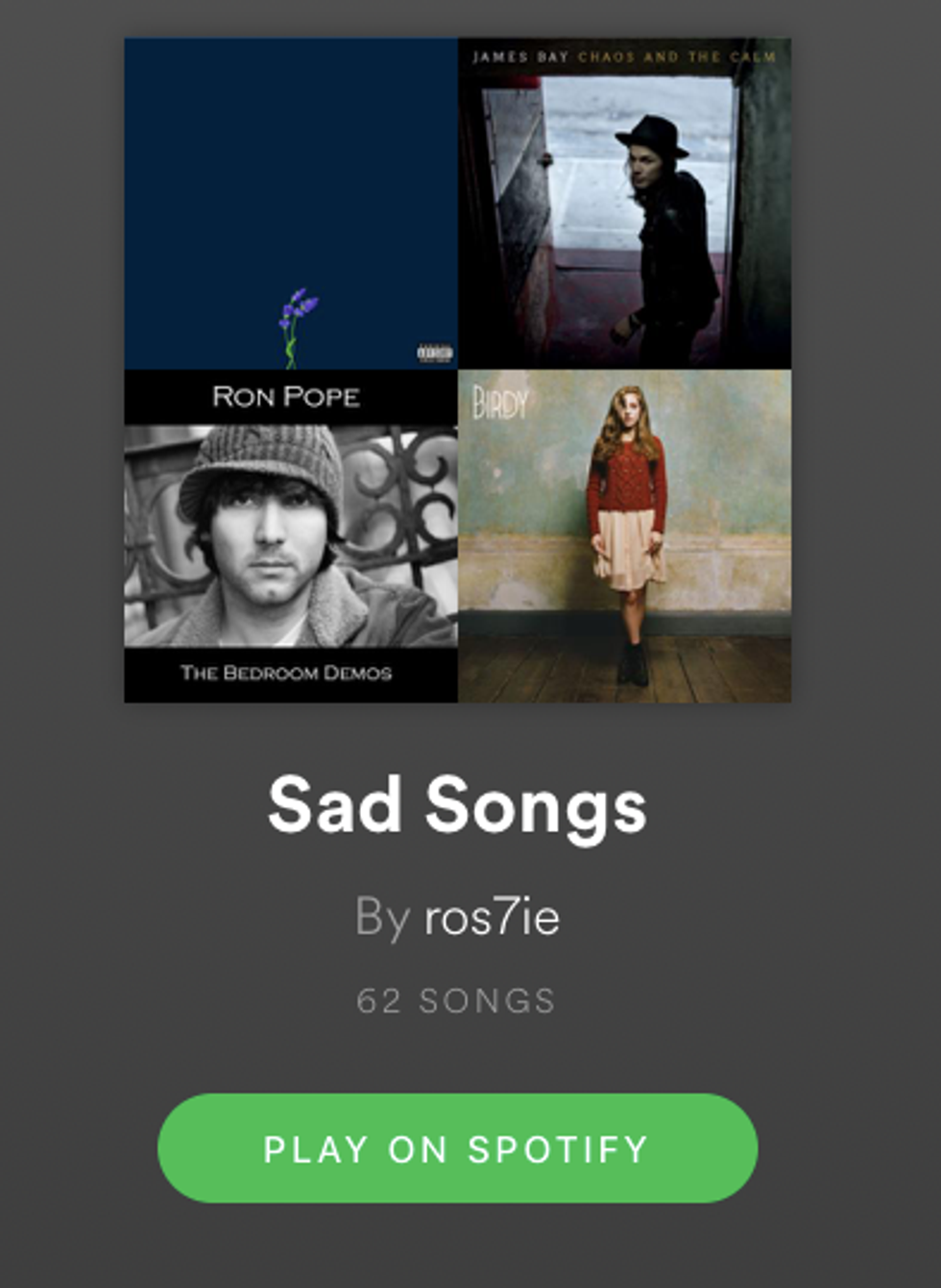One day, I was sitting in UGA's main study hall late one night cramming for a Microeconomics test coming up the next morning. I was sitting in a little "distraction canceling" cubical trying to figure out how to calculate tax revenues from the supply curve shift. Regardless of how deeply I tried to focus, I couldn't stop hearing my neighbor's Sam Smith playlist blaring from his headphones. No matter how deep into my cubical I learned, all I could hear was Smith's sulky voice and my neighbor's soft hums. Honestly, it didn't bother me much because I like to study to music sometimes, but something about Sam Smith really is depressing... or really any love-drunk singer. Singers like Bon Iver, Sam Smith, Adele, Ed Sheeran, Birdy, etc. really get you in your feelings. I have always wondered what it is about some songs that make you really feel like you should lock yourself in your room. I asked myself this question as I walked away from my sullen neighbor in hopes to find a better study place. Of course, I spent more time looking into this question than actually studying. So, now I present to you:
Psychology of Sam Smith... and every other sad song
It's a pretty common idea that the type of music you listen to changes your mood. I can personally say when I am getting ready to go out and I'm just not feeling it, some throwbacks or Queen B really get me in the mood. There is actually an entire field of Psychology dedicated to examining music and music therapy. A study in Finland found that music is chosen because of one or more of these seven reasons: Entertainment, Revival, Strong Sensation, Mental Work, Solace, Diversion, and Discharge. They found the last three reasons are associated with emotional responses. Solace is when you listen to a song because you can relate and be understood by the singer. Diversion is used to change your mood. Discharge is when you seek out the song or singer because it matches how you feel. The activity in parts of your brain changes when you listen to different types of music. When someone is listening to Skinny Love or Marvin's Room, the parts of your brain associated with sadness and loneliness start reacting differently than if that person was listening to Hannah Montana's best hits album. This is because music has the ability to influence your brain to make hormones that change your mood.
A lot of the time the "sad" music we listen to goes beyond the lyrics. I interviewed a hand-full of people, asking about whether or not the lyrics really matter in a song, they answered similarly in saying "Of course!" Both men and women were both convinced the lyrical content of a sing makes up what a sad song is. This is actually not scientifically the case. Anyone that knows music knows the difference between a major or minor key. A key is a series of notes that work well together to make a certain sound that emotes a certain emotion. Major keys can be associated with happiness. Think of the first songs you learn on the piano: Mary Had A Little Lamb, Ode To Joy, etc. or every single upbeat pop song. Minor keys are notoriously sad. They give the listener feelings of longing and sadness. See the list below of especially sad songs in minor keys.
There is actually a lot of science behind music. It's interesting to realize how big of an impact it has in our everyday life. Restaurants, clothing stores, offices, therapy centers, etc. utilize our subconscious attraction to music to influence our behavior. Music is science. So the next time you judge a music major, just remember, they're a scientist too.
Songs in the minor key:
F Minor: Adele - Hello
Bb Minor: I See Fire - Ed Sheeran
C Minor:
Check out this sad song playlist I made:
Sad Song Playlist:
https://open.spotify.com/user/ros7ie/playlist/4p4VtU9s8cW6uKO8Zyc7Wb?si=F5wgHXIcTKOLyQmflSWI3A
Sources:
https://www.nbcnews.com/better/health/why-do-certa...
http://www.telegraph.co.uk/sponsored/health/hearin...
photo:





































